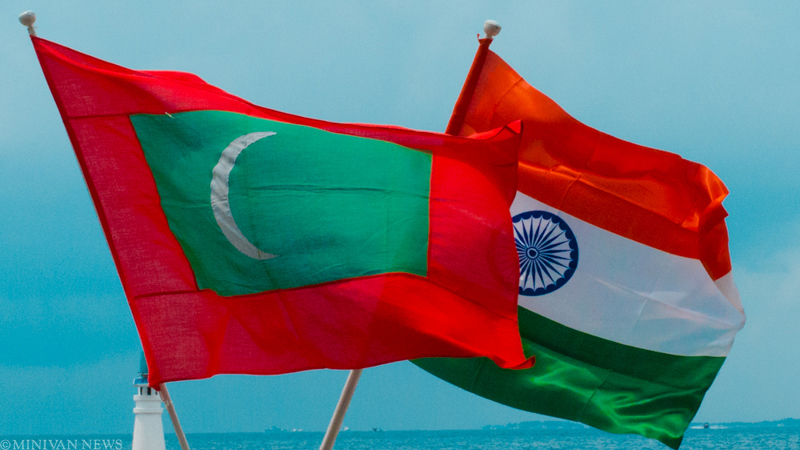The Maldivian government considered buying out the 2010 airport development contract from India’s GMR, but lacking the necessary funds declared the agreement invalid, Minivan News can exclusively reveal.
The Maldives is now facing a payout to GMR, potentially as high as US$803 million or over half of the state budget, after a Singaporean tribunal last year ruled that the agreement was valid and binding.
The government, however, expects the compensation claim to amount to US$300 million. The exact figure is yet to be determined by the tribunal.
Testimony by cabinet ministers and airport company officials – in a separate arbitration between the government and an Indian bank over the airport deal – show that ex-president Dr Mohamed Waheed Hassan asked his cabinet to estimate the sum required to buy out the concession agreement from GMR.
Minivan News has obtained the opening submissions by the government and the Axis Bank made in February and March, respectively.
According to the submissions, then-minister of youth and sports, Mohamed ‘Mundhu’ Hussain Shareef, said the cabinet did not “have the necessary information to make a reliable calculation, but the potential figures were intimidating … As it was the country would have had difficulty paying even US$200 million.”
Former defence minister Mohamed Nazim said what the cabinet “did establish was that it was almost certainly more than either MACL [the Maldives Airports Company Pvt. Ltd] or the government was in a position to pay.”
The inability to buy out GMR led to a political impasse, Shareef said.
At the time, the Adhaalath Party had issued a six-day ultimatum to the government to nationalise the airport.
The religious conservative party in alliance with the Progressive Party of the Maldives, the Jumhooree Party and a coalition of NGOs had played a key role in ousting former President Nasheed and bringing his deputy Dr Waheed to power.
Shareef said the coalition’s opposition to the concession agreement was one of the main reasons behind Waheed assuming the presidency.
The emergence of the void ab intio or invalid from the outset argument was a way out from the political impasse, he said.
Ibrahim Mahfooz, a director at the state-owned MACL at the time, said president Waheed had also asked the company for an estimate of the sum required to buyout GMR, but said it was clear to the company’s board that the sum would exceed what they or the government could immediately afford.
If president Waheed has asked the company to buy out GMR, “I expect that we would have asked for time to attempt to borrow the money and if President Waheed had insisted on our acting immediately, I expect that some of us would have resigned, forcing President Waheed to appoint new board members who were willing to comply,” Mahfooz said.
At a cabinet meeting on November 27, 2012, ministers unanimously agreed to terminate the deal with GMR.
“This entire agreement has to be brought to an end, as it is believed by everyone that the agreement is invalid and cannot be continued legally,” Dr Waheed said, according to cabinet meeting minutes submitted to the tribunal.
Then-vice president Mohamed Waheedudeen said: “This cabinet represents a lot of political parties. Amongst them, almost everyone does not want to renegotiate this agreement, and wants to terminate this agreement.
“The decision taken today will be for national independence; this country’s existence as nation in the future and making it possible for the coming generations to inherit this nation. And for these reasons the agreement should be terminated.”
The government’s takeover of the airport led to a cooling of relations between India and the Maldives, with India imposing visa restrictions on Maldivians seeking medical treatment in India and ceasing the export of some construction materials.
In the submissions obtained by Minivan News, the Maldives said GMR and Axis Bank had successfully lobbied India for the sanctions.
The restrictions were only lifted after President Abdulla Yameen assumed power in November 2013.
The Axis Bank is seeking repayment of the US$160 million loan as well as an additional US$10 million as interest and fines from the Maldivian government. The bank contends that state is liable for the loan in the event of an early termination or an expropriation of the airport.
The government first argued that declaring the concession agreement void ab initio did not amount to an early termination.
Following the verdict in the GMR tribunal, which said the government had repudiated or refused to honour the terms of the agreement, the government claimed a repudiation did not amount to an early termination.
The Axis Bank, however, says the GMR arbitration ruling is not applicable in its case, arguing that the bank is not bound by the ruling issued in a separate, private and confidential arbitration.
